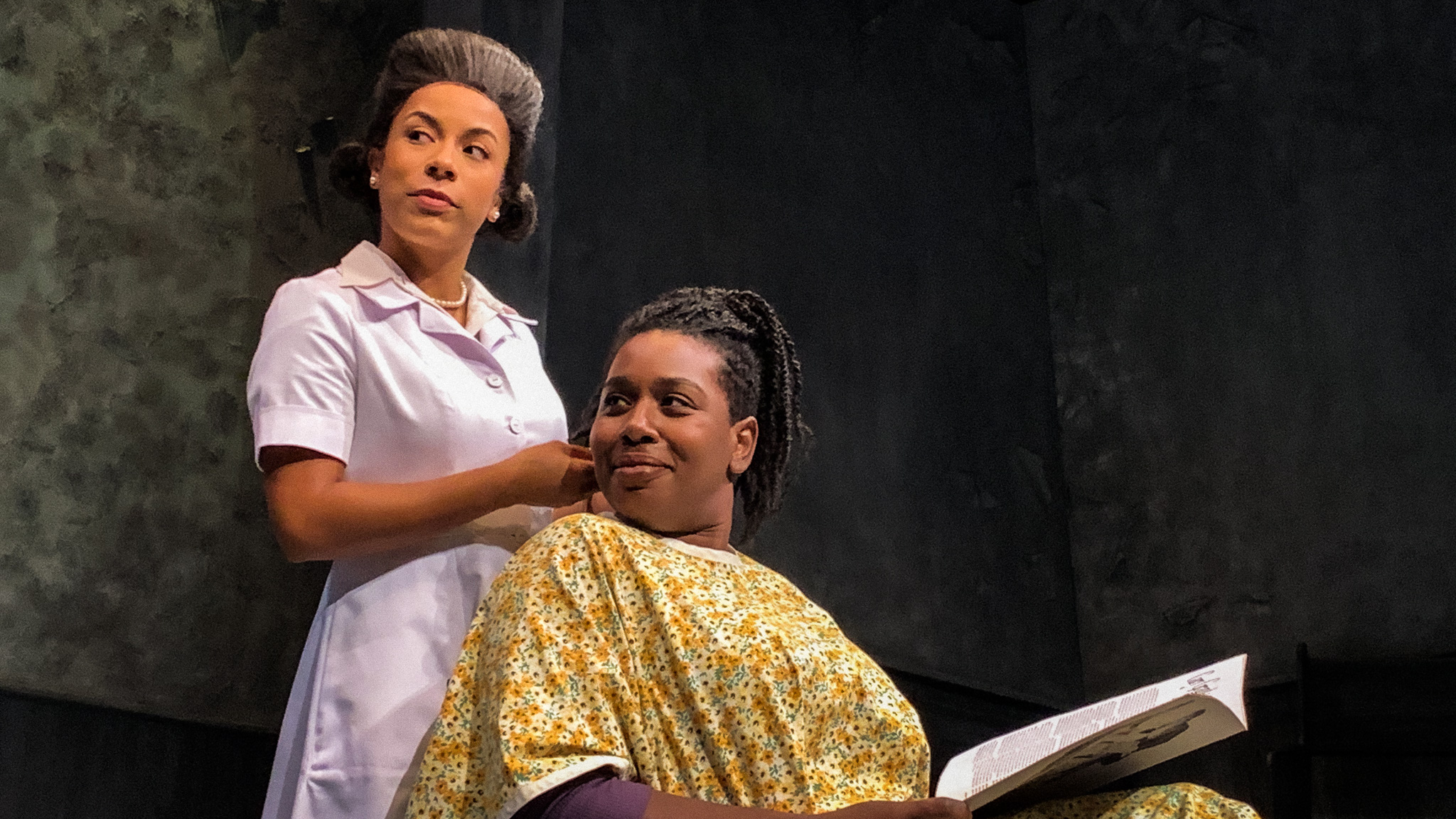New play removes our ‘contemporary lens’ on Viola Desmond’s story
Neptune Theatre's Controlled Damage examines how Desmond would have been perceived in 1946

caption
Deborah Castrilli (left), who plays Viola Desmond, in a scene with Meghan Swaby, who plays Rose Reid.Seventy-three years ago, Viola Desmond took an important step in Nova Scotia’s civil rights movement.
Her story is the latest play to open at Neptune Theatre with the world premiere of Controlled Damage.
But this version of her story is not as straightforward as some might believe.
“Viola Desmond has been positioned as a hero and a civil rights activist,” said Controlled Damage’s playwright, Andrea Scott, in an interview. “But we’re putting a contemporary lens on who she was in 1946.” Related stories
Desmond’s story is well-known in Nova Scotia. She was a businesswoman who operated her own hair salon. On a business trip to Sydney, she stopped in New Glasgow to have her car repaired. While waiting, she decided to watch a movie at the Roseland Theatre but was arrested for refusing to move from the theatre’s whites-only section.
“She was somebody who was an ordinary woman who got caught up in a situation where she had to act,” Scott said. “And she had two choices: she could have gotten up and went to the balcony and sat down and just taken the behaviour that infringed on her dignity, or she could have stood up for herself.
“Sometimes, the act of just existing and saying, ‘No, I will not do that,’ is considered a political and revolutionary act.”
In Controlled Damage, Scott wanted to reflect on how Desmond would’ve been perceived in 1946 — eight years before segregation ended in Nova Scotia.
Back then, Scott said not everyone would’ve seen Desmond as a hero. People in her own community might’ve seen her as a troublemaker rather than a trailblazer. The New Glasgow community might’ve been angry with Desmond for casting a negative light on the town. Even Desmond’s own husband wasn’t entirely supportive.
Scott wanted these different perspectives to radiate from Desmond, who is the centre of the play.
Deborah Castrilli, the lead actress playing Desmond, said she’s humbled and honoured to play Desmond — her first big lead role.

caption
Ryan Allen plays Desmond’s husband, Jack Desmond.While Desmond’s story is more than half a century old, Castrilli said it’s still relevant to today’s black community.
“We so often talk about how far we’ve come, but really we still have so much further to go,” Castrilli said in an interview. “There’s still people being dragged out of establishments and it’s unfortunate and sad, but it just reminds us how this story is important as ever.”
Castrilli mentioned the recent incident where Santina Rao was accused of stealing at the Mumford Road Walmart in Halifax. Rao was shopping with her children when she “just got dragged out of the Walmart,” Castrilli said. “It sounds eerily exactly the same.”
Nigel Shawn Williams, the play’s director, said the show will take a deep dive into racism, misogyny and patriarchy. It will also treat Desmond as a human being with flaws.
“It’s going to unveil for us how things have not changed very much, and that’s why we have to keep telling these stories,” he said. “Hopefully by looking at the past, it’ll open up our eyes and we’ll actually take some action.
“It’s not just a Halifax story, it’s not just a Canadian story. It’s a human story. We all have a responsibility as citizens of this world to learn and treat people better, and that’s really at the core of what this play is about.”
Controlled Damage runs from Feb. 4 to 23 on Neptune Theatre’s Scotiabank Stage.
About the author
Chris Stoodley
Chris is a fourth-year student at the University of King's College. He's a big fan of all things visual and loves to keep up with the world of...

D
David Woods